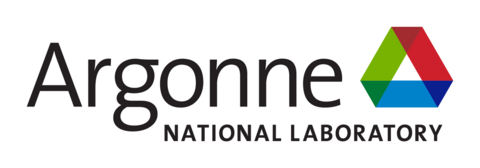From Waste to Watts: Argonne is Unlocking the Power in Used Nuclear Fuel
From Waste to Watts: Argonne is Unlocking the Power in Used Nuclear Fuel
LEMONT, Ill.--(BUSINESS WIRE)--Nuclear reactors across the U.S. generate used fuel, but more than 95% of that fuel still holds valuable energy. Through advanced chemical processes and new technologies, scientists aim to recycle this material to generate more power and reduce long-term radioactive waste. Researchers are now working to make this potential a practical, scalable solution.
Scientists at the U.S. Department of Energy’s Argonne National Laboratory are partnering with SHINE Technologies, a Wisconsin-based company, to design a new process for separating valuable materials from used nuclear fuel. The process employs innovative equipment, including centrifugal contactors—spinning devices that efficiently separate mixed liquids—to create a safer, more efficient recycling method ready for industrial use.
“Bridging scientific research and industrial implementation is critical,” said Candido Pereira, deputy division director of Argonne’s Chemical and Fuel Cycle Technologies (CFCT) division. “Our team is committed to supporting the private sector with world-class solutions.”
Recycling used nuclear fuel is complex. It’s highly radioactive, generates heat, and must be safely stored and cooled. Facilities need systems to manage small amounts of leftover material. Nuclear material also requires strict safeguards to prevent unauthorized use. Scientists apply “safeguards by design” early in development to ensure compliance and security.
Economic viability is another hurdle. Recovered materials need practical applications and buyers. Some utilities may use recycled fuel in advanced reactors. Other byproducts—such as radioisotopes—can power space missions or be used in medical diagnostics. If demand exists, building recycling facilities becomes more feasible.
Foresight is essential. Scientists must anticipate how future reactors will use fuel and what materials they'll require. Experts at national labs like Argonne are uniquely positioned to predict these needs and tailor recycling processes.
Peter Tkac, nuclear chemist and manager of Argonne’s CFCT Radiochemistry Group, leads the effort. “It’s important we develop a process that doesn’t produce a pure plutonium stream,” he said, citing security risks. Tkac’s team uses a Van de Graaff accelerator to simulate radiation conditions and test chemical durability in safe lab environments, speeding innovation.
Tkac’s group also collaborates with SHINE to test Argonne’s centrifugal contactors. Using 3D printing, they build custom prototypes of different designs, allowing rapid, cost-effective testing.
“Recycling used nuclear fuel is complicated,” said Tkac. “But with the right strategy, we can reduce waste, improve energy supply, and support the future of nuclear power.”
Contacts
Christopher J. Kramer
Head of Media Relations
Argonne National Laboratory
Office: 630.252.5580
Email: media@anl.gov

